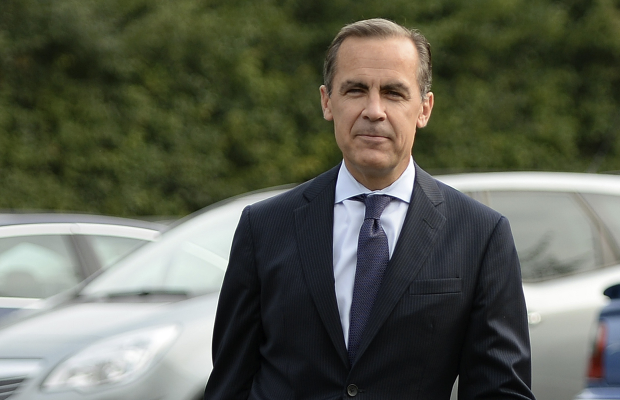Bank of England governor stresses that forward guidance will return inflation to target

(Source: Bank of England)
The governor says that he does intend to raise rates before the unemployment threshold of seven per cent is met.
But with Monetary Policy Committee members already rebelling against this (as Martin Weale voted against at the last meeting), it's not clear that Mark Carney will be able to control policy as he would like.
Nonetheless, Carney repeated the key points of the central bank's forward guidance policy:
Our forward guidance provides you with certainty that interest rates will not rise too soon. Exactly how long they stay low will depend on the progress of the recovery and in particular how quickly unemployment comes down. What matters is that rates won’t go up until jobs and incomes are really growing.
Carney recognised that controlled prices have created obstacles in bringing inflation back down to trend. As the Bank can only really pull demand side levers, it is unable to deal with this artifical inflation.
CPI inflation is currently being pushed up by rises in utility prices and tuition fees that do not reflect the underlying pressure of demand on supply, along with the effect of past increases in import prices.
…
Given that ‘administered and regulated’ price increases will continue to push up on inflation over the next two years, the MPC is prepared to bring inflation back to the target over two years or a little longer.
The governor was keen to dismiss concerns that regulators were pushing banks too hard. Some argue that conflicting targets are causing banks to reduce lending. This doesn't seem to be an argument that Carney cares for:
Some argue that the repair of banks’ balance sheets holds back economic recovery because it causes banks to cut back their lending. The reality is the opposite: where capital has been rebuilt and balance sheets repaired, banking systems and economies have prospered.
Carney confirmed some changes to regulator requirements for banks and building societies:
For major banks and building societies meeting the minimum 7% capital threshold, the Bank of England will reduce the level of required liquid asset holdings. The effect will be to lower total required holdings by £90 billion, once all eight major banks and building societies meet the capital threshold.
That will help to underpin the supply of credit, since every pound currently held in liquid assets is a pound that could be lent to the real economy.